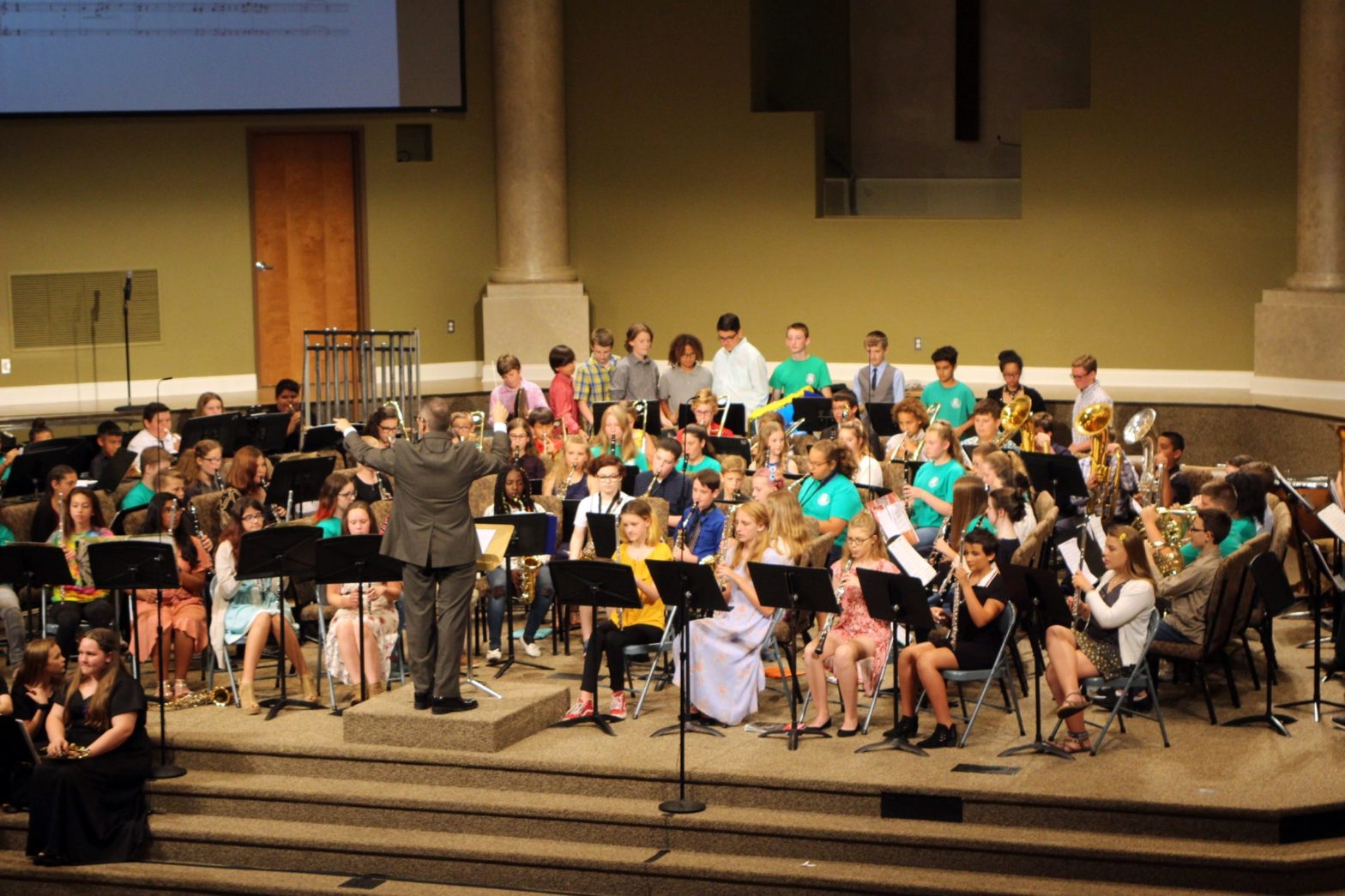![The Hobbs Middle School Symphonic Band directed by Robert Colon plays the last concert of the school year. [FILE PHOTO]](http://127.0.0.1/wordpress/wp-content/uploads/2022/01/ghows-DA-8baedd48-4171-656c-e053-0100007f7c43-f19ada01.jpeg)
MILTON — A child's brain can develop faster with exposure to music education, according to a two-year study by researchers at the Brain and Creativity Institute (BCI) at the University of Southern California.
The study shows that exposure to music and music instruction accelerates the brain development of young children in the areas responsible for language development, sound, reading skill and speech perception.
"Their have been countless studies for years on the fact that student musicians learn at a faster rate," said Alicia Coon, district choral music coordinator and music teacher at Bennett C. Russell Elementary School.
The study began in 2012 with 37 6- to 7-year-old subjects. The students were from underprivileged neighborhoods in Los Angeles.
Thirteen students received music instruction from the youth orchestra program in Los Angeles where they practiced up to seven hours each week, 11 of the children enrolled in community soccer program and 13 were not involved in any program.
The researchers compared the groups by tracking electrical activity in the brains, behavioral testing and monitored changes using brain scans.
"The results showed that the auditory systems of the children in the music programmed had accelerated faster than the other children not engaged in music," said Dr. Assal Habibi, a senior research associate at the BCI.
Habibi explained that the auditory system is stimulated by music and the system is also engaged in general sound processing. This is essential to reading skills, language development and successful communication.
"The researchers have concluded there are three major areas where music can have an impact on the brain development in children," said Dr. Anita Collins, a researcher on the study. "Language development, executive function development and social skills development."
"Language development is probably the most advanced because it was the first that was really discovered," she added. "The other reason it is so advanced is because music and language share the same processing overlapping neural network."
In the executive functioning group, Collins' favorite, which focuses on learned behavior.
"These social skills are not the ones we are trying to teach kids," Collins said. "They are the really nuanced, innate, often non-verbal social skills. Where to stand with your friends, when is it time for you to speak, things of that nature."
Coon has worked in education for 35 years. She said that the county school system uses a program called Quaver in their general music education program. The Quaver program uses a lot of technology and the music lessons it provides are tied to language, math, science and history all related to the music.
The general music education starts at pre-K and every student must attend until they reach middle school, then they can decide if they want to continue playing music. The sad part, according to Coon, is that not all schools have the equipment needed in these early elementary classes.

This article originally appeared on Santa Rosa Press Gazette: Can music help children learn?
